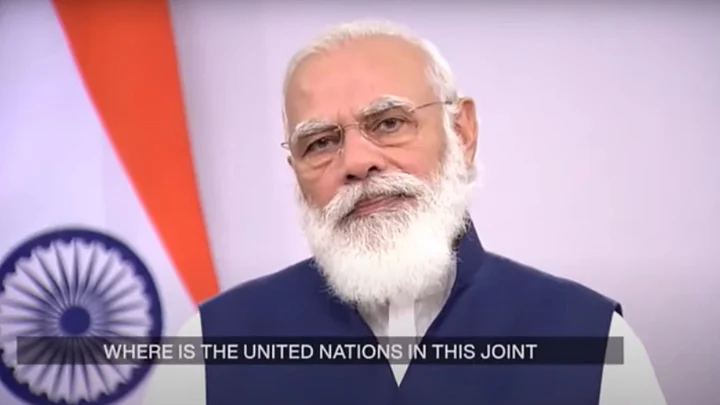Nation states addressed the 75th session of the United Nations General Assembly (UNGA) virtually across several days in September 2020, wherein several world leaders and national representatives voiced strong support for multilateralism and the United Nations.
"Through their virtual presence, our political leaders have demonstrated their commitment to multilateralism and the United Nations. The vast majority confirmed this commitment in their speeches," said Volkan Bozkir, president of the UNGA 75, at the closing ceremony of the virtual summit.
Multilateralism is the collusion in participation by multiple parties, in particular, the governments of different countries.
The debate that stood out most prominently was that of the coronavirus pandemic that has shaken the world, its economy and political standing.
“US did not provide the leadership that was expected of it”, said Naghma Sahar, Senior Fellow at Observer Research Foundation. "We’ve seen that the pandemic, COVID-19, there has been a lot of politicisation, and pointing fingers at each other," she continued.
MODI'S MULTILATERAL STANDING
“PM Modi spoke of the pandemic, and of the very constructive role that India can play. He spoke of the vaccine and said India is giving an assurance to the world community that India’s vaccine production and delivery capacity will be used for all humanity,” said Sahar, lauding Modi's stance.
“India’s approach is very multi-lateral in its essence, that even if we have the capacity to first prioritise our vaccine development, we are not saying it in so many words,” said Harsh Pant, Director of Studies and Head of Strategic Studies Programme at ORF.
“We are trying to make a case that India can only benefit from that pharmaceutical capacity if it is anchored in a larger global framework,” he added.
“[Modi] was telling a story that needs to be told, that India has done relatively well, given its constraints, given its capacity problems; India has been more active, more engaged, more multilateral in some ways than many other countries.”
TRUMP'S ATTACK ON CHINA
“In contrast, if you look at Trump’s speech, who spent much of his UNGA speech for attacking China, who he blamed for unleashing this plague on the world,” said Sahar, referring to Trump's constant naming of the "China virus."
"[Trump] has a very tough election going forward so it’s not surprising that his main audience were people back home, not the global audience. So, he was not trying to impress anyone with his leadership credentials or his statesman like approach," said Pant.
“His whole idea has been to divert attention from the problem that he faces internally. His mismanagement is something that he wants to pivot from” by moving the focus to China.
This has opened up space for a new leader, as America has ceded the leadership role to another actor.
JINPING & CHINESE LEADERSHIP
With space created as the US under Trump's leadership pivots away from multilateralism to be more inward-looking, Xi Jinping rose to assert Chinese leadership.
“The fact that America cannot rise to the occasion [to play the role of global leader], means that Jinping uses that space to make a case about Chinese leadership", said Pant.
"Xi came across as a defender of free trade, and multilateralism even though his international and domestic persona are very, very different," said Sahar.
"Trump has given him so much space to play the role of a statesman, that despite all the troubles he is creating around the world," even though he may have asserted some claims that do not work in congruence with the reality of China, he added.
There is a third space for India, Pant argued. India must capitalise on the lack of global leadership, making a place for itself, explained Pant.
“It is important for countries like India to make a case for an alternative. You can have America on the one hand, and China on the other, but there are other countries in the middle that believe in a multi-lateral order which is rule-spaced, which is transparent, and generates equity,” he added.
(At The Quint, we question everything. Play an active role in shaping our journalism by becoming a member today.)
